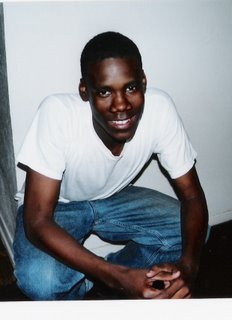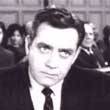
I stood in line for a very long time to see the first Superman movie. If memory serves me correctly, we were living in New Orleans at the time.
Yep, I checked just now, vintage 1978.
I love the hero, the zany plots and all of the other characters whether found in comics books, television shows or the movies.
I expect that much of my "addiction" has to do with the many fond memories of early television in my childhood.
So, naturally, I have seen the latest,
"Superman Returns."This most recent film is by far the best, in my opinion.
Special effects, casting, story line. I loved all of it.
But, the script really got me from a sociological and theological standpoint. This film is full of theology.
Talk about a vision of the "messiah."
Upon his return to earth after a 5-year hiatus, he discovers that his special friend, Lois Lane, has won a Pulitzer Prize for her much-acclaimed editorial essay,
"Why the World Doesn't Need Superman."It is clear she wrote the opinion piece to come to terms with the fact that her hero was gone forever, or so she thought at the time. His return is startling to her, to say the least!
Superman finds that she has a new love and a young son. So things are different.
In his own attempt to deal with his loss and his emotions, he enters into a "conversation" with his long deceased father, Jor-El (note the Hebrew ending to the family names).
"Even though you were raised as a human being, you are not one of them. They can be great people, Kal-El. If they wish to be. They lack the light to show them the way. For this reason above all--their capacity for good--I have sent them you. . .my only son," Jor-El explains.
In a face-to-face encounter mid-way through the movie, Lois and Superman talk through their issues.
"Let's start with the big question. Where did you go?" Lois asks.
"To Krypton. When astronomers thought they'd found it. . .I had to see for myself," the super hero replies.
Later, Lois presses him, "How could you leave me like that?
"I'm sorry if I hurt you. . .," he responds.
"I moved on. I had to. We all did. That's why I wrote it. The world doesn't need a savior and neither do I," she continued.
At that, the caped wonder takes Lois on one of their trademark sky rides through the night.
Attaining a fairly lofty height, he stops and asks her to listen. She tells him that everything is quiet and that she can hear nothing.
"Do you know what I hear? Everything. You say the world doesn't need a savior. . .but every day I hear people crying for one," he shares with her.
He then assures her that he will always be around and bids her good night.
The theology here is worth a closer look. The basics of it are fairly easy to identify.
People have about them a basic goodness. For sure, there is the Lex Luther side to us all, and that causes lots of problems because it figures prominently in every life to one degree or another.
But the fundamental view here is that human beings have amazing capacity for goodness and for community.
What is needed is light. . .a model, an alternative to confusion and strife.
Further, the world is in pain and, because this is true, it needs a savior--someone with solutions, actions that actually make things better, less painful and more just.
The trouble is, it needs that savior now--today. And it needs that savior here because of the suffering.
The point is the earth--its pain, its grief, its suffering and its need. There is no plan to escape the here and the now of the earth. The plan is to reclaim the planet for that which is good--for its true created purpose.
Any thought about what is beyond this world is left to another dimension and another discussion. But such considerations cannot be allowed to dominate a worldview, otherwise the concerns of this world will not be given their due consideration.
So, Superman goes to work doing his appointed work: relieving pain, diminishing suffering and shedding light.
Most Christians will likely find such a view unsettling and unacceptable, I expect.
Actually, this view of redemption ought to be studied carefully by every congregation representing the Christian church in this nation. This is such an important challenge to face and with which to wrestle.
Most churches in 2006 want to focus on the messianic work of Jesus, as they understand him.
Such a view is heavy on eschatology, end times, heaven and life after this miserable existence.
Thus, almost every thought of the savior has to do with spiritual atonement and eternal salvation. The mission is to enjoy a personal walk with an unseen God and find peace against the world via thoughts of heaven's reward. The journey back to Krypton!
It seems plausible to posit that the stronger a church or denomination's view of heaven, the less likely it is to be really engaged on the earth, except to rescue people from the world for the sake of eternity.
Such a view, now so prevalent, encourages people to withdraw from the world and its challenging pain and injustice. For some groups, it even means that political action in history is really all about speeding the arrival of the end.
The church could learn a lot from Superman. You remember, don't you. The champion for "truth and justice"?
In many ways, his life and mission seem closer to that of the reality of Jesus than most churches are able or willing to recognize.































